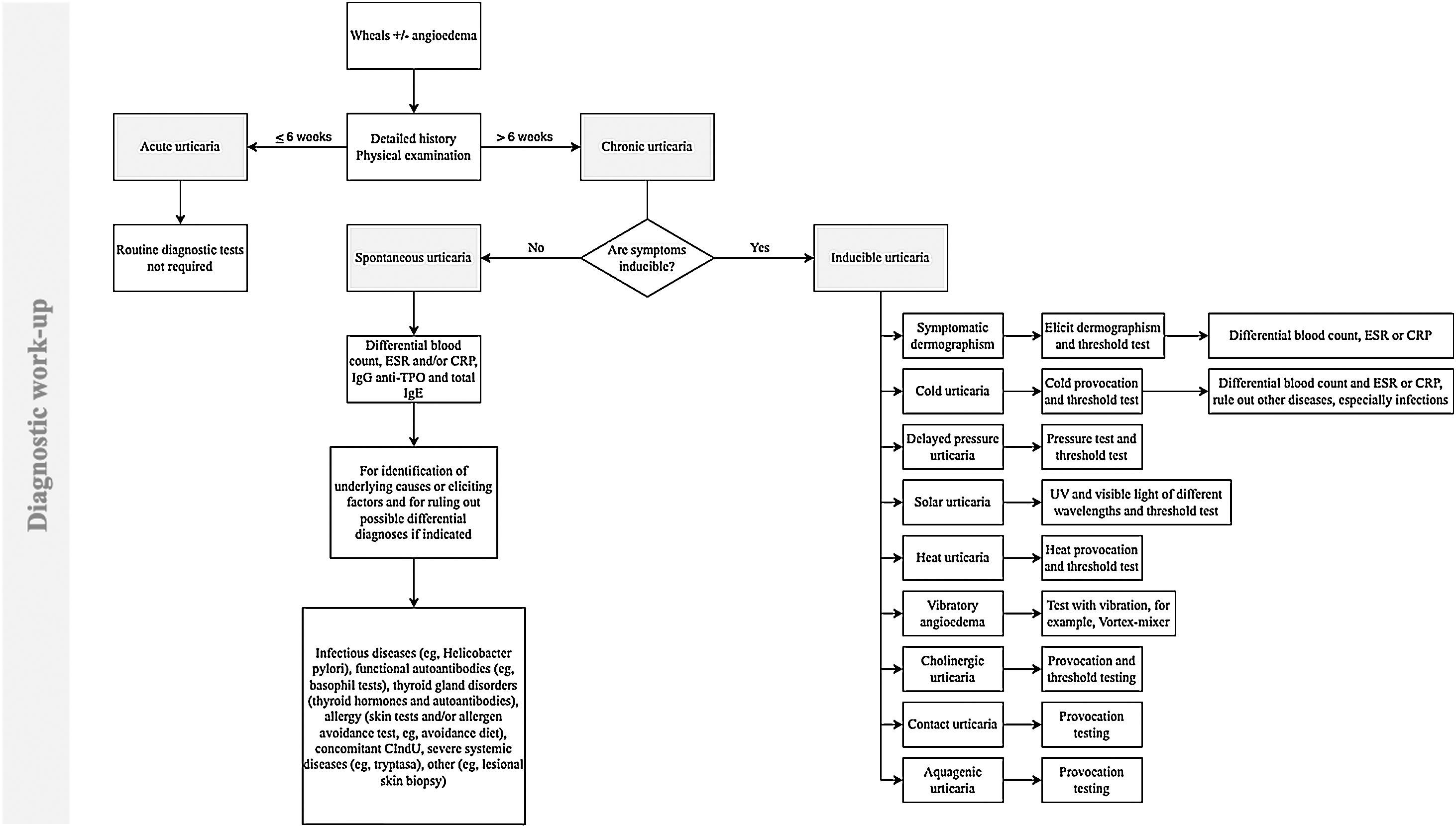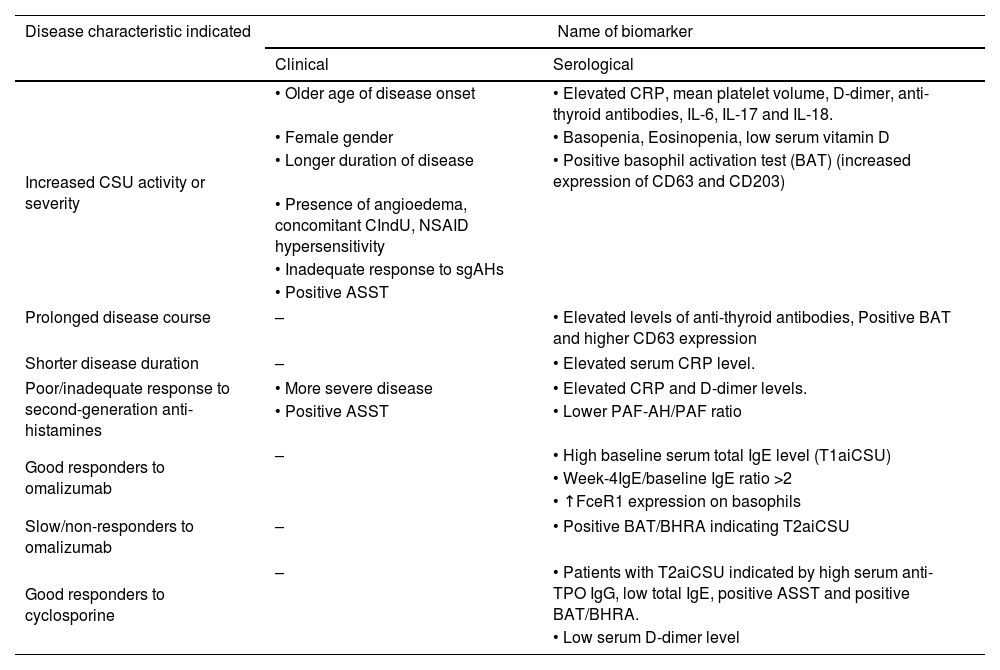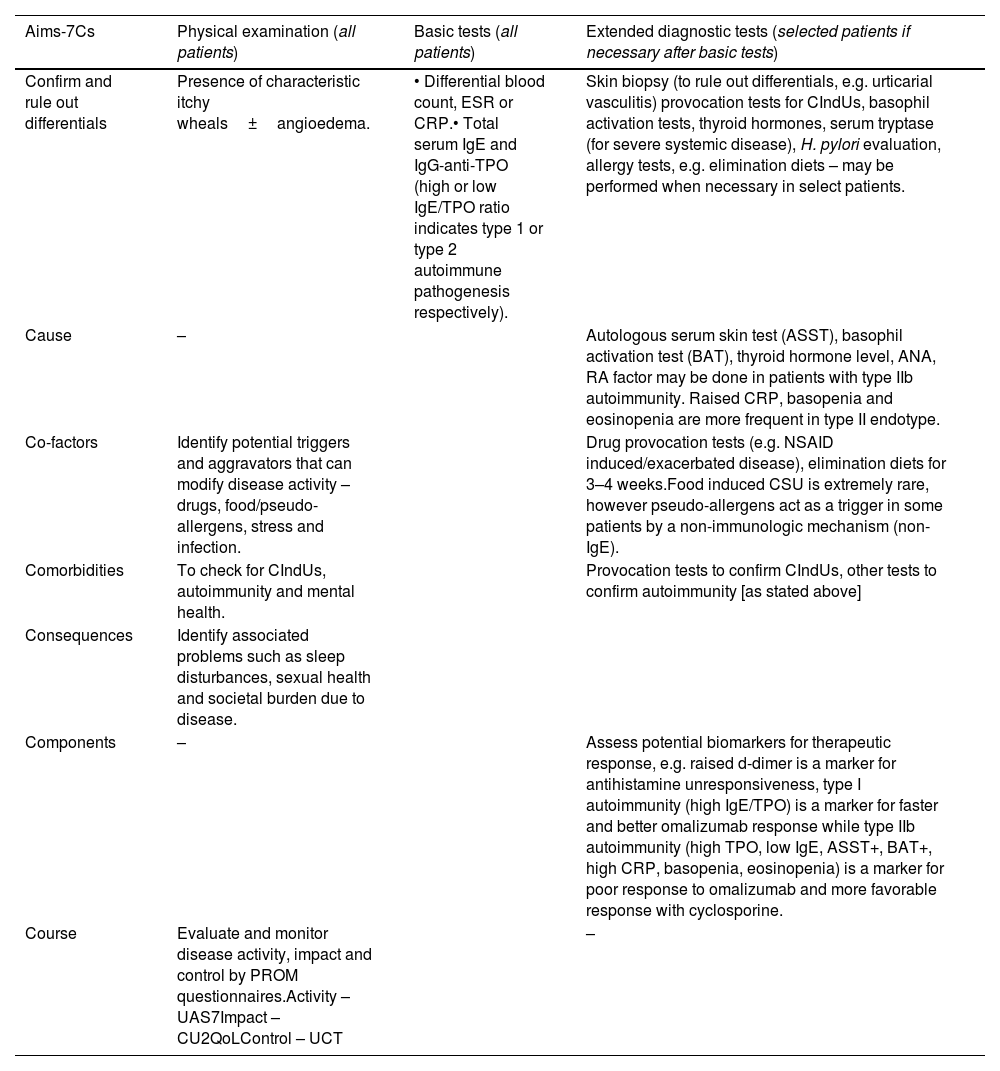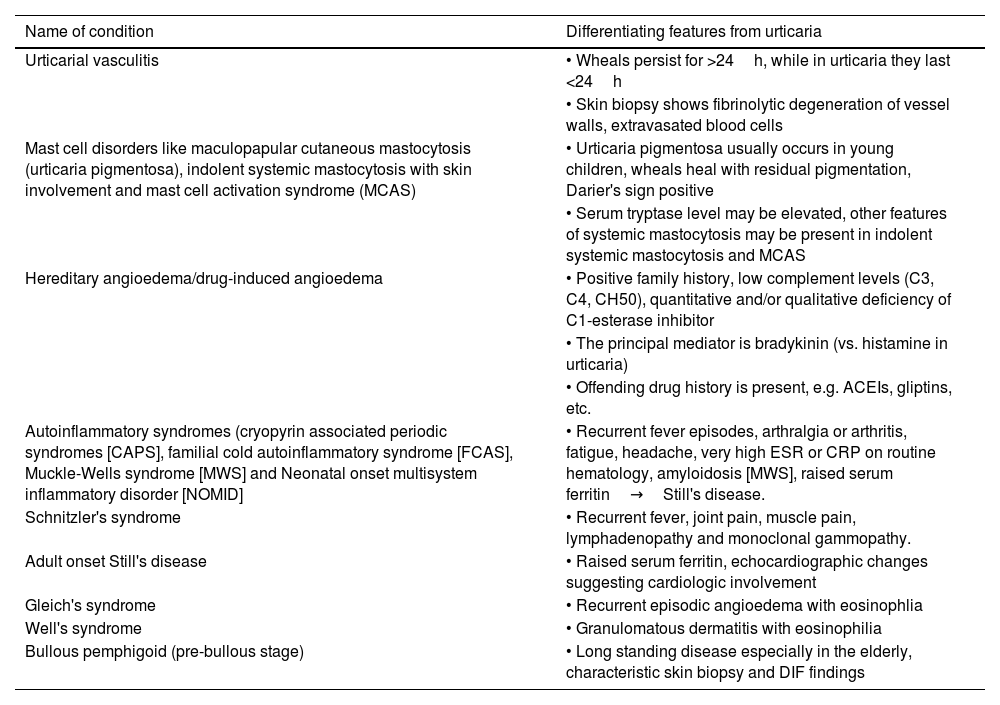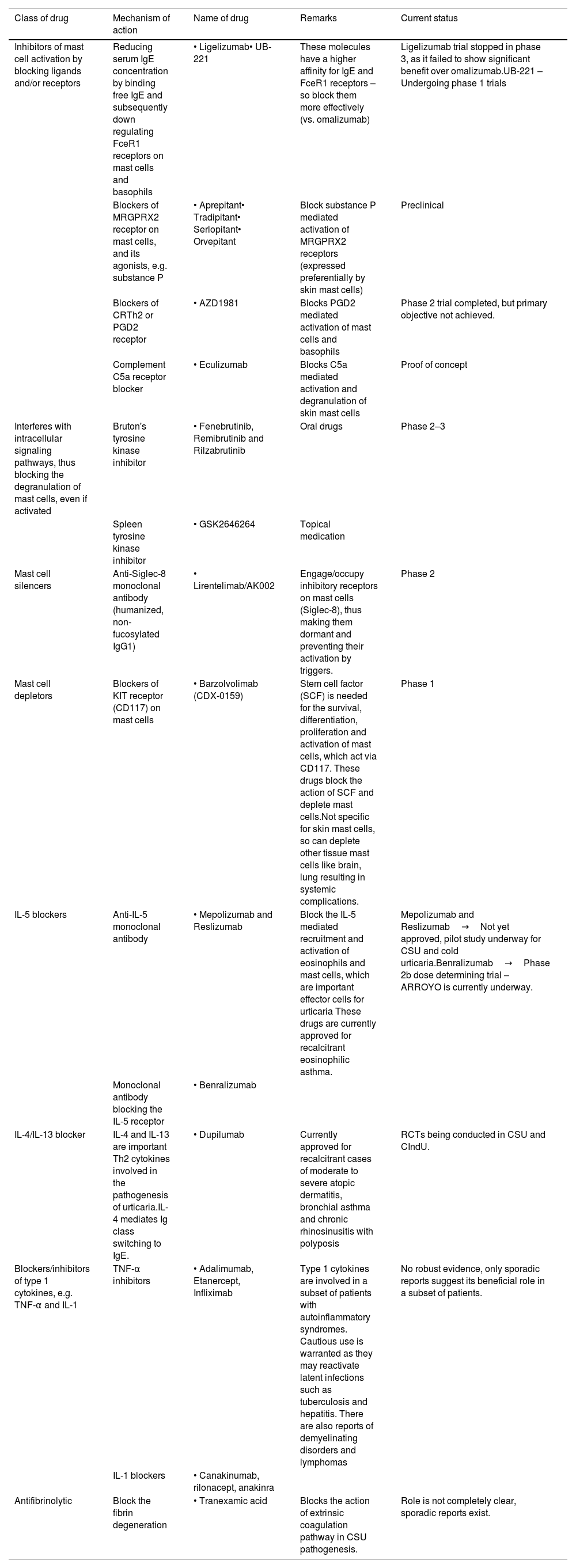Urticaria is a skin-condition characterized by sudden-onset pruritic wheals with/without angioedema. Urticaria can be acute or chronic. Chronic urticaria may be spontaneous or inducible, based on absence/presence of specific triggers. Chronic spontaneous urticaria is most frequent (∼80%). Urticaria is primarily a mast-cell mediated histaminergic-disorder. Recently, other inflammatory cells and pro-inflammatory cytokines have been implicated. Deeper understanding has unmasked two endotypes – IgE-mediated type I autoimmunity/autoallergy and IgG-mediated type IIb autoimmunity. Current treatment recommendation involving second-generation H1-antihistamines, omalizumab and cyclosporine is effective in 60–80% patients. So, newer treatment options are being explored based on emerging targets. Despite being non-lethal, urticaria considerably impairs patient's quality-of-life and may be associated with extra-cutaneous comorbidities. Several “patient reported outcome measures” have been proposed to evaluate disease-activity, impact and control, for effective treatment modulation till complete disease control. This review discusses the current understanding about urticaria and its future directions, to facilitate optimum evidenced-based care.
La urticaria es una afección de la piel caracterizada por ronchas pruriginosas de aparición repentina con o sin angioedema. La urticaria puede ser aguda o crónica. La urticaria crónica puede ser espontánea o inducible, según la ausencia/presencia de desencadenantes específicos. La urticaria crónica espontánea es la más frecuente (∼80%). La urticaria es principalmente un trastorno histaminérgico mediado por mastocitos. Recientemente se han implicado otras células inflamatorias y citocinas proinflamatorias. Una comprensión más profunda ha desenmascarado dos endotipos: autoinmunidad/autoalergia tipo I mediada por IgE y autoinmunidad tipo IIb mediada por IgG. La recomendación de tratamiento actual que incluye antihistamínicos H1 de segunda generación, omalizumab y ciclosporina es eficaz en 60-80% de los pacientes. Por lo tanto, se están explorando opciones de tratamiento más nuevas en función de objetivos emergentes. A pesar de no ser letal, la urticaria deteriora considerablemente la calidad de vida del paciente y puede estar asociada con comorbilidades extracutáneas. Se han propuesto varias «medidas de resultado informadas por el paciente» para evaluar la actividad, el impacto y el control de la enfermedad, para la modulación efectiva del tratamiento hasta el control completo de la enfermedad. Esta revisión analiza la comprensión actual sobre la urticaria y sus direcciones futuras, para facilitar una atención óptima basada en evidencia.







